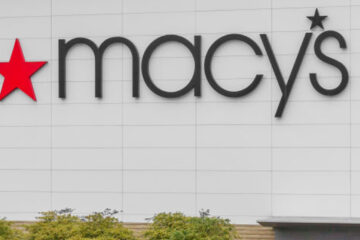The covid pandemic created some unique situations for retailers. Some companies thrived because people needed what they were selling to make it through extended periods of either lockdown or at least spending more time at home.
Those were banner days for off-brand toilet paper and paper towel brands. Consumers needed those products and, when you don’t have any toilet paper, you’re not going to be all that picky about brands.
These pandemic-related boom times were not limited to paper towel and toilet paper brands. Exercise equipment for the home was nearly impossible to buy because for a period, in most of the United States, gyms were closed or operated at very limited capacities.
Related: Coca-Cola president explains why it killed a popular beverage brand
Covid brought on a golden age for companies like Peloton (PTON) – Get Free Report which offered premium products that allowed people to exercise from home. That company also benefited from higher-wage workers not losing any income during the pandemic but having fewer places to spend it.
That same trend impacted leisure wear as well. A lot of women were wearing leggings and yoga pants during the work-from-home days while men put on sweatpants and joggers. When there was no reason to dress up, people opted for comfort.
This pulled a lot of demand forward not just in the home exercise equipment space, but also in athletic and leisure wear. Now, a leading brand in making activewear for women has decided to pursue a sale of its assets and intellectual property through a process called “general assignment.”
In a general assignment, a company hires a firm to liquidate its assets in accordance with state law in an expedited process. Going out of business in that way generally saves on lawyer fees compared to a Chapter 11 or Chapter 7 filing.
Peloton has struggled since gyms reopened.
Image source: Peloton.
Bandier puts its assets up for sale
Bandier, which will continue to operate during the sale of its assets, describes itself in the following way on its website:
“We believe you should never have to sacrifice your style for performance. We believe you should feel good in the clothes you’re working out in. And, above, all we belive fitness should be fun.”
The company has hired DSI Assignments to handle its general assignment process which will include its intellectual property (things like its brand name and website, as well as its assets including but not limited to inventory and accounts receivable, the company shared in a Nov. 29 press release. according to a Wednesday press release.
“Bandier is still operating, and the decision to sell was made by the board of directors due to a variety of headwind factors such as supply chain issues,” Steven Victor of DSI Assignments told Retail Dive.
Bandier has already begun the process
Bandier laid off 52 workers on Nov. 22, according to a WARN notice it filed with the New York State Department of Labor. The company cited “economic reasons” as being behind the decision. The company did say in that notice that all employees were expected to be rehired under a new business entity, but that may no longer be the case given that any decision on that would be up to the company’s new owner.
There is also no guarantee during the general assignment process that Bandier would be sold whole. It could be sold off in parts if that produced the best return for the company’s creditors.
The company operates five retail stores along with its website. It also began selling select collections on Amazon (AMZN) – Get Free Report in 2021.
“Bandier’s private collection, All Access, is full of activewear essentials designed to give fitness fans the ultimate workout experience, including bestselling Center Stage Leggings, Front Row Bra, and Chorus Bra. With a focus on timeless design, the WSLY label features transitional pieces like the repeat-sellout Rivington Tank along with cult-favorite Ecosoft Classic Hoodie + Jogger,” the company shared at the time.


